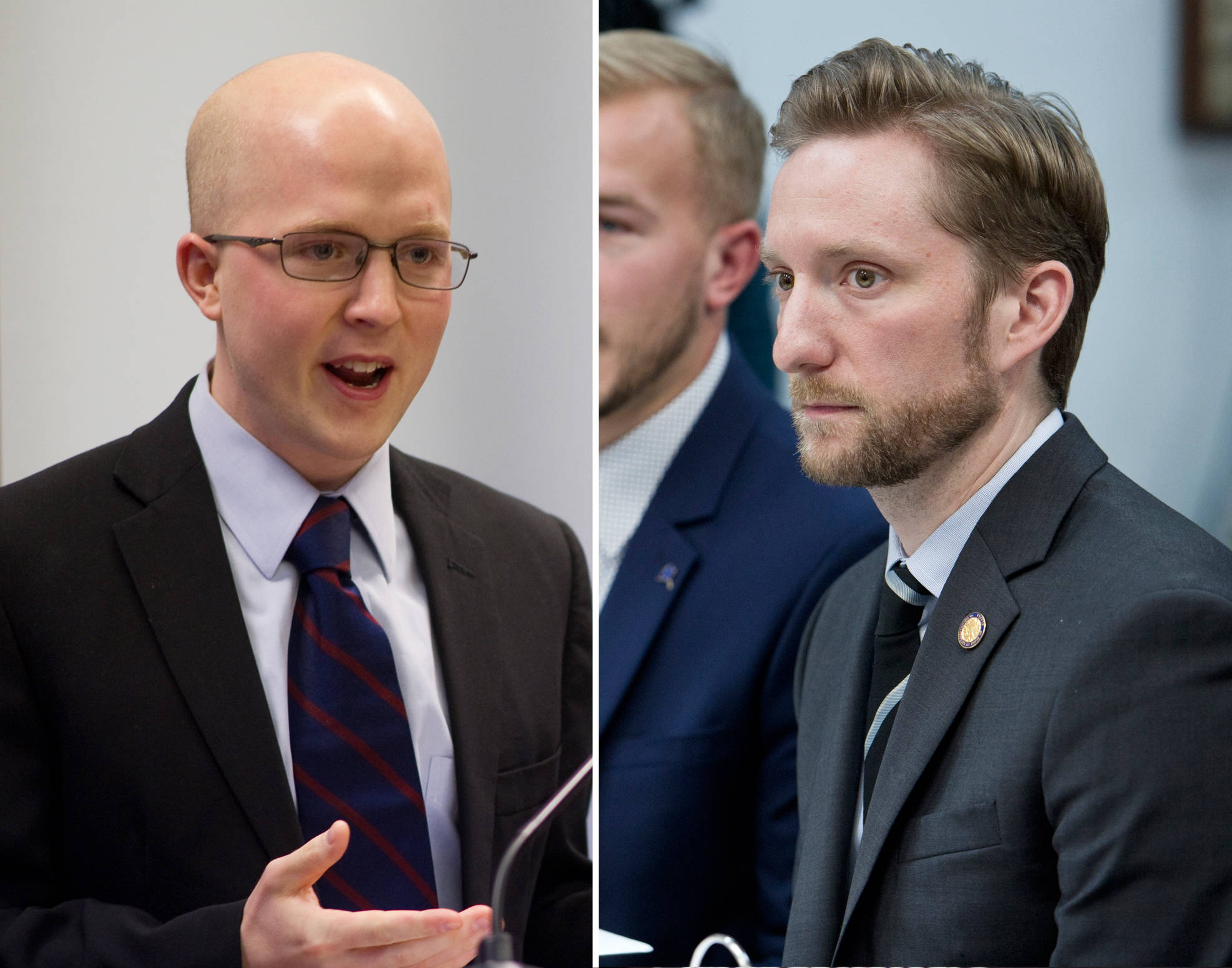Two Alaska legislators and a longtime Republican organizer are trying to prohibit lawmakers from collecting expense payments if they fail to pass a state budget on time.
A new ballot initiative, billed the “Alaska Government Accountability Act,” would also limit some campaign contributions, require legislators to announce conflicts of interest before votes, and limit lobbyist gifts.
Rep. Jonathan Kreiss-Tomkins, D-Sitka; Rep. Jason Grenn, I-Anchorage and Bonnie Jack of Anchorage are behind the initiative, which was submitted to the Alaska Division of Elections on Monday. Each was named an initiative “co-chair” in a press release announcing the initiative.
The division could not provide the formal language of the proposal, but Jim Lottsfeldt, the initiative’s “mechanic,” confirmed it was submitted.
Grenn, speaking by phone from Anchorage, said the initiative is an effort to build trust between Alaskans and their elected officials.
“It really is about building trust and showing Alaskans that for us, our role as representatives isn’t about earning extra per diem, isn’t about out-of-the-country trips. It’s about good governance,” he said.
During this year’s legislative session, Grenn proposed a bill and a resolution to strengthen the Legislature’s conflict-of-interest guidelines. The resolution was defeated by the House, and the bill has not been considered by the Senate.
Grenn said the initiative could have focused on a single topic, but “I think we wanted to make sure that if we were going to get behind this, it was worth it.”
Grenn said Kreiss-Tomkins, who did not immediately respond to calls for comment, “did a lot of the bulk work looking for funders and backers.”
According to records filed with the Alaska Public Offices Commission, the initiative is being financially supported by Represent.us, a Massachusetts-based nonpartisan organization whose goal is “to pass powerful anti-corruption laws that stop political bribery, end secret money, and fix our broken elections.”
In the past two weeks, according to APOC documents, the group has supplied $25,960.45 to Alaskans for Integrity, an organization formed to promote the initiative.
Lottsfeldt said he thinks “voters in Alaska, based on how they see the Legislature, will readily accept (the initiative). I don’t think there’s a logical biggest opponent.”
Under Alaska law, the office of the lieutenant governor has 60 days to certify a ballot measure as constitutional and thus worthy of inclusion on a state ballot.
If the lieutenant governor approves an initiative, its sponsors then have one year to garner enough signatures to put it on the ballot.
In this case, Lottsfeldt said the goal is to get the signatures before the Legislature convenes in January, a deadline that would ensure it makes the fall 2018 ballot.
Backers need signatures equivalent to 10 percent of the previous general election tally. In 2016, 321,271 Alaskans voted. That means each ballot initiative needs 32,127 signatures.
Those signatures have to be spread across the state: Signatures have to come from at least three-quarters of the state’s 40 House districts, and in each of those districts, the signatures have to represent at least 7 percent of the people who voted in 2016.
In the Mendenhall Valley, for example, 9,106 people cast ballots. That means ballot-measure supporters would need 637 signatures from House District 34.
Three other ballot measures have already been proposed and are under consideration by the lieutenant governor’s office. Those include two health-care-related items and one dealing with fisheries protection.
Contact reporter James Brooks at james.k.brooks@juneauempire.com or call 523-2258.

